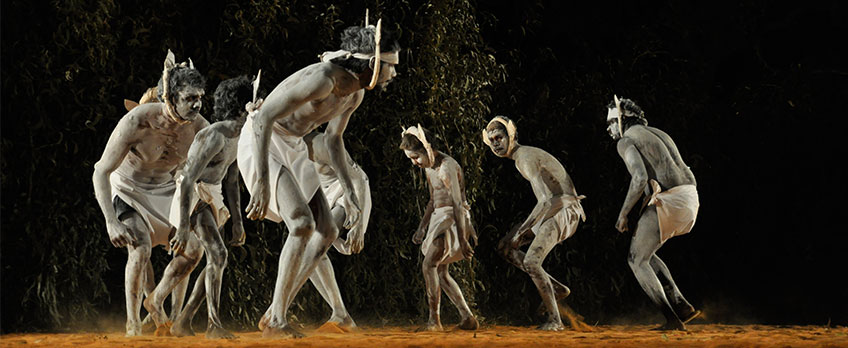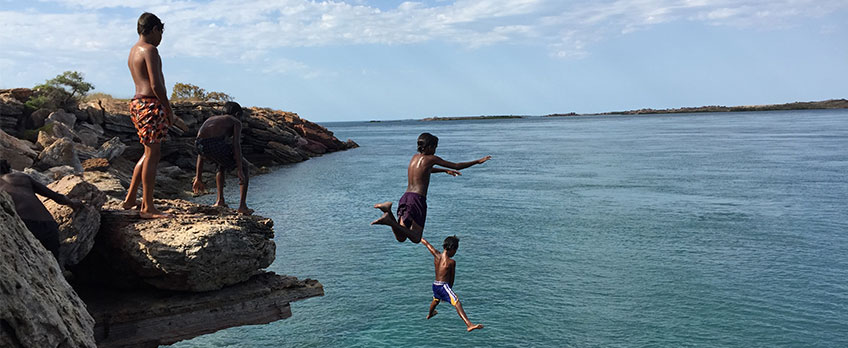Q&A with UNDERMINED: TALES FROM THE KIMBERLEY Director Nicholas Wrathall

You travelled across remote areas of Australia for a long time capturing unique stories and landscapes for the making of the film. What motivated you to undertake such an ambitious and intensive project?
Our initial motivation to investigate the issues in the Kimberley that came to light when the government was threatening to close remote indigenous communities in 2015. We found that people on the ground in the Kimberley region were not getting any information on the future of their own communities and were living under a cloud of government threats of closures and uncertainty for their future on their lands. Once we started speaking to local people in the region we discovered that their major concerns centred around the proposed development push to open up the region to increased mining, fracking and agricultural development. This became the central issue of our film as we continued our work.
What are some of the central concerns that you’re trying to create awareness of with the making of the film and what do you hope its impact will be?
We would like people to be aware of the fact that this pristine area of Australia is being targeted for major future development including mining, fracking and major agricultural projects with very little involvement of, and benefits for, local traditional owners. That native title laws are being circumvented to allow corporations to open up the land for development without traditional owners being included in the planning and also the potential benefits that flow from development.
You interact very closely with a number of Aboriginal communities in film – what drew you to the stories of the communities that you chose? And how did you go about earning their trust?
We spoke to many people in different communities and unfortunately were not able to include them all in the film. The stories that did make it into the film were those with the most dynamic changes going on at the time of our filming and also with the people that we felt were open to engaging with us and a larger audience. These stories were also unfolding in real time while we were working in the region and so provided the most drama for the film. We believe they are a good representation of some of the challenges people are facing in the region.
Most people were very open to sharing their stories with us; we actually found people very welcoming and friendly and rarely had any issues in working with people in the region.

Kimberley Traditional Owners – including activist, musician and Bardi man Albert Wiggan and academic and Yimardoowarra woman Dr Anne Poelina are key characters in the film; can you tell us a little about each of them?
Albert Wiggan is an emerging leader in his community of Beagle Bay. He is very outspoken and able to articulate the traditional values and beliefs to a larger audience in a relatable way. I really believe that Albert has a lot to share and teach the Australian public. He is a very likeable person and a talented musician as well. I think Albert will touch the heart of many people who see the film.
Anne Poelina is an active academic and also a leader involved in local issues in the Broome area. She worked recently as a local council woman in Broome and is very good at holding people accountable in government and challenging the status quo.
There is a real strength and dignity in both of these people and the good work they are involved in. I hope we captured some of this in the film.
The film shot in some very remote (and stunningly beautiful) areas – and over a long-time period. What were some of the greatest challenges in getting this film completed?
The large distances in the region was a big challenge for us as our key storytellers were spread over a vast region that we had to traverse many times during the filming. The heat is also very challenging as you can imagine filming in 40 degrees-plus weather can be very difficult!
While this is a very Australian film, would you agree it is also a sadly universal story in terms of development and first peoples?
Yes, I believe that similar stories are playing out all over the world. First peoples are protectors of the environment and our modern society does not share the values of nurturing and protecting the earth so we are constantly in conflict over resources and development without considering the damage we are doing to our planet.